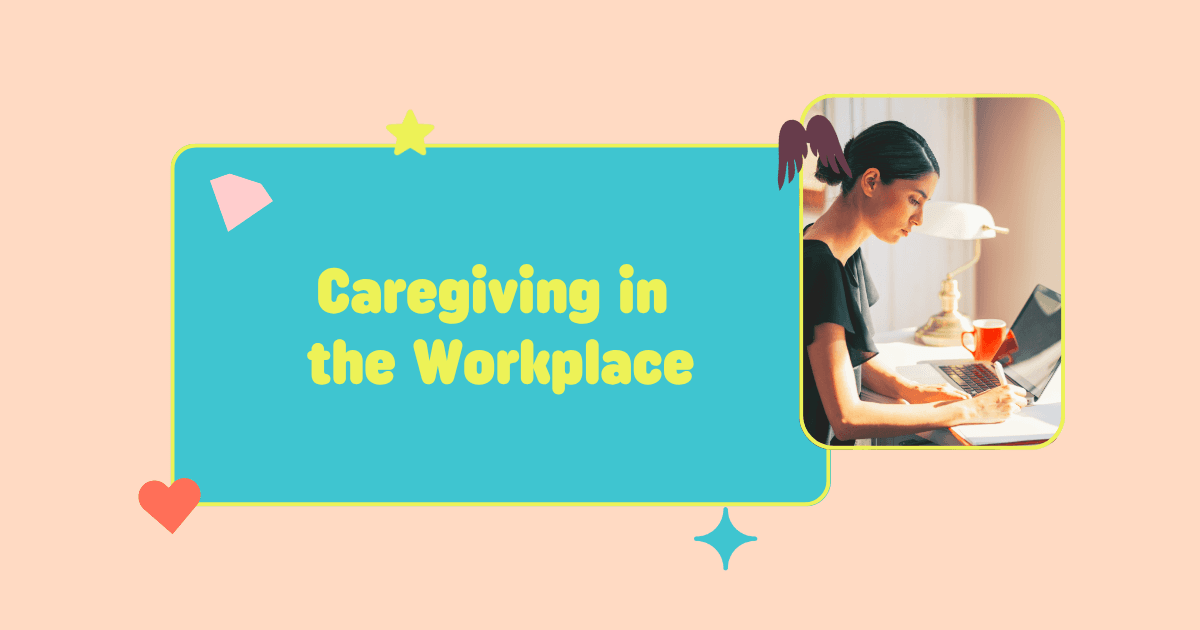Balancing Acts: The Reality of Working Family Caregivers
More Americans than ever are standing up and stepping in to care for loved ones — all while clocking in for full-time work.

Nicole àBeckett
Published on July 30, 2025

More Americans than ever are standing up and stepping in to care for loved ones — all while clocking in for full-time work. Whether it’s a parent caring for a child with special needs, an adult child supporting an aging parent, or a spouse managing home care for a partner, the burden on working caregivers is increasing — and so are the stakes.
The Caregiving Surge
There are now 53 million U.S. adults providing care to a spouse, elderly relative, or special-needs child — a significant increase from 43.5 million in 2015. This group includes millions of full-time employees, and as of 2023, 1 in 5 American workers now juggles their job with caregiving responsibilities — up from 1 in 7 in 2020.
This growing need isn't just a personal concern — it's an economic one. The direct cost of caregiving to the U.S. economy is nearly $44 billion, with over 650,000 jobs lost and 800,000 workers facing absenteeism issues due to caregiving demands.
A Day in the Life of the Working Caregiver
Caregivers are now devoting nearly 26 hours per week to unpaid care — almost triple the 2020 average of 9 hours. And nearly a quarter of caregivers report working full-time while simultaneously providing care — double-duty with little rest in between.
The stress shows: 41% of caregivers report low overall well-being, which is 32% more than non-caregivers. They are also more likely to experience mental health challenges like anxiety and depression, and they’re twice as likely to take a leave of absence due to their own health issues.
Gender and Generational Gaps
Women still carry the heavier burden. They make up 56% of working caregivers and are twice as likely as men to leave the workforce due to caregiving duties. Millennials now make up the largest segment of working caregivers — surpassing Gen X — suggesting the future of the workforce will continue to face these dual demands.
And then there’s the “sandwich generation”: workers caring for both children and aging parents. These caregivers report some of the lowest levels of physical, mental, and financial well-being — especially when they’re single and female
The Financial Tightrope
Half of all caregivers live paycheck to paycheck. They spend an average of 26% of their income on caregiving-related expenses and are less likely to have life insurance, retirement savings, or disability insurance compared to non-caregivers.
One staggering stat: the median lost wages for women caring for their mothers is $24,500 over just two years.
The Workplace Disconnect
Despite these challenges, nearly half of caregivers have never discussed their responsibilities with their employer. Only 44% say their benefits meet their needs, compared to 63% of employers who believe their organization is supportive. That perception gap is costing employers in productivity, morale, and retention.
Remote work and flexible schedules make a measurable difference — caregivers with flexible work options report better mental health than those without. But only 29% of caregivers say their employer provides caregiver support.
What Employers Can Do
Supporting caregivers isn't just the right thing to do — it's a smart business strategy. Employers can:
Promote open conversations and reduce caregiving stigma
Offer flexible schedules and remote work options
Provide access to services like HeroGeneration.
Create caregiver employee resource groups.
The Path Forward
The caregiving crisis isn’t looming — it’s already here. With the average American living longer and diagnoses of serious illnesses on the rise, the number of working caregivers will continue to grow. If employers don’t step up, caregivers will continue to burn out — and businesses will pay the price.
Let’s change the story. Let’s stand up for those who are stepping in.
Add HeroGeneration to your workplace benefits stack today!
contact: hello@herogen.co

About Nicole àBeckett
Nicole àBeckett is the founder of HeroGeneration, a platform born from her personal journey as a caregiver to her aging parents. While raising her own young family, Nicole was thrust into the complex world of hospital discharges, care decisions, and medical advocacy — all with little guidance or support. Her experience as part of the “sandwich generation” inspired her to create a resource that didn’t exist: one that empowers caregivers with clarity, tools, and community during some of life’s most overwhelming transitions. A passionate advocate and social entrepreneur, Nicole brings heartfelt stories, practical insights, and a mission to shine a light on the invisible work of caregiving. She’s on a mission to change how we support family caregivers — and to remind them they’re not alone.
